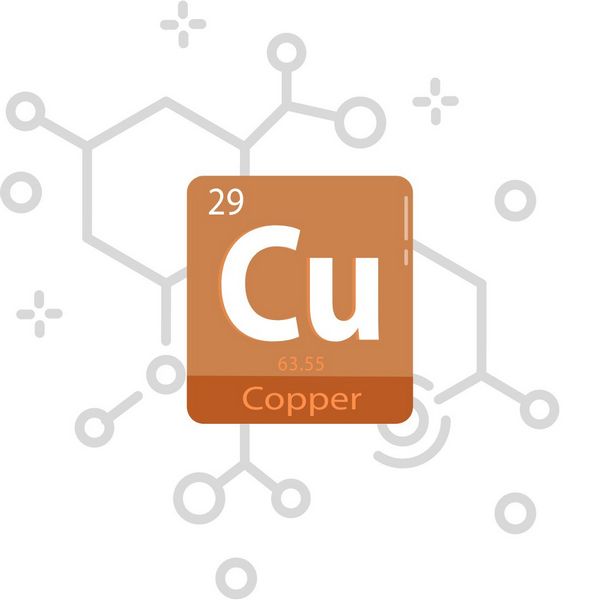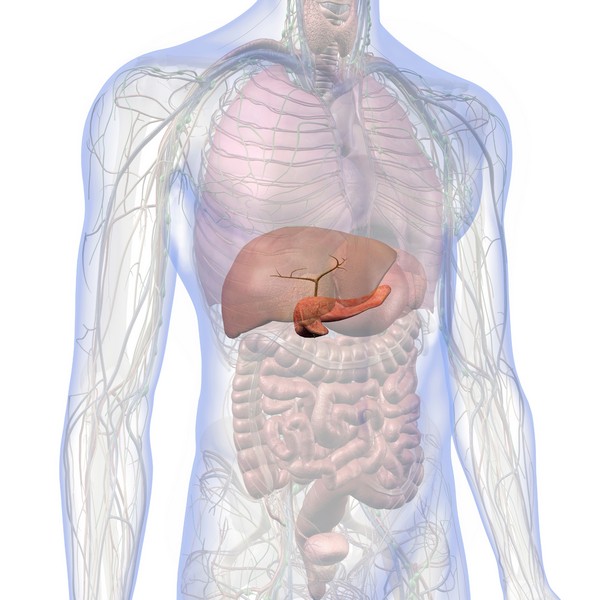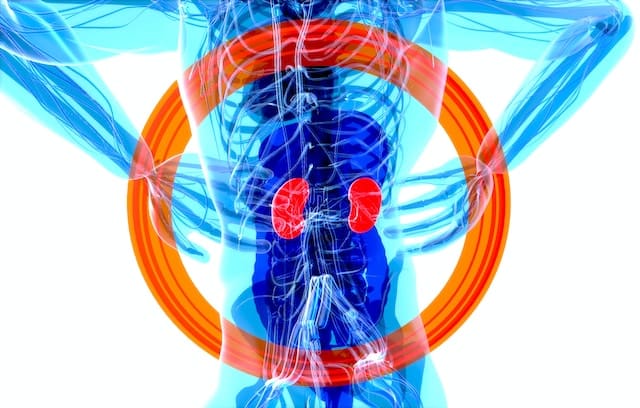Key Takeaways
- Type 1 and Type 2 diabetes involve insulin regulation issues, with Type 2 being the most common due to insulin resistance.
- Copper, retinol, and magnesium are crucial for maintaining insulin sensitivity and overall metabolic health.
- Iron overload and high carbohydrate intake can worsen insulin resistance and should be managed carefully.
- A diet low in carbohydrates and rich in animal products supports blood sugar stability and nutrient density.
- Lifestyle factors like exercise, stress management, and sleep play a significant role in diabetes prevention and management.
Understanding Diabetes

Diabetes is a chronic condition that affects how your body processes blood sugar (glucose). The most common forms are Type 1 and Type 2 diabetes.
Type 1 diabetes is an autoimmune condition where the body attacks the insulin-producing cells in the pancreas. It often develops in childhood or adolescence.
Type 2 diabetes, more prevalent, usually occurs in adults. It’s characterized by insulin resistance, where the body doesn’t respond well to insulin, leading to high blood sugar levels.
Insulin, a hormone produced by the pancreas, plays a critical role in regulating blood sugar levels. When insulin sensitivity decreases, it can lead to elevated blood sugar, increasing the risk of various health complications.
Important Nutrients

Copper’s Relationship with Diabetes:
Copper plays a nuanced role in the metabolic processes related to diabetes, influencing both glucose metabolism and overall health.
While research is ongoing, several studies highlight how copper status can impact diabetes risk and management.
- Antioxidant Function: Copper is a key component of various enzymes that function as antioxidants, such as superoxide dismutase. These enzymes help mitigate oxidative stress, which is elevated in diabetes and contributes to complications such as neuropathy and cardiovascular disease.
- Glucose Homeostasis: Abnormal copper levels can disrupt these pathways, potentially leading to or exacerbating glucose intolerance and insulin resistance.
- Copper Imbalance: Some studies suggest that individuals with diabetes might have altered copper levels, with some showing elevated serum copper, which could be linked to the chronic inflammation commonly seen in diabetes. This imbalance might affect the progression and management of the condition.
- Dietary Copper and Diabetes Risk: Ensuring adequate copper intake from a balanced diet might help maintain metabolic health but is unlikely to directly prevent or treat diabetes.
- Influence on Fat Metabolism: Dysregulated fat metabolism is a contributor to insulin resistance, and proper copper levels may help manage this aspect of metabolic health.
Retinol, the real natural Vitamin A, is vital for copper uptake. Without sufficient retinol, your body can’t efficiently use copper, leading to metabolic issues that can exacerbate diabetes.
Magnesium’s Role in Diabetes:
Magnesium is crucial for energy production, stress management, and maintaining normal muscle and nerve function. Studies have shown that magnesium deficiency is common among individuals with diabetes, and this deficiency may worsen insulin resistance, a hallmark of type 2 diabetes.
- Insulin Sensitivity: Magnesium aids in the activation of insulin receptors and the insulin signaling pathway, enhancing the body’s ability to use insulin efficiently. Adequate magnesium levels can improve insulin sensitivity and reduce the risk of developing type 2 diabetes.
- Glucose Control: Research indicates that higher dietary magnesium intake is associated with lower fasting glucose levels. Magnesium supplementation has been observed to help stabilize glucose levels and may be beneficial as part of a comprehensive diabetes management plan.
- Risk Reduction: Several large-scale studies suggest that higher magnesium intake is linked with a lower risk of type 2 diabetes, especially among those at high risk due to obesity or a family history of diabetes.
- Complications of Diabetes: Magnesium has protective effects against the complications of diabetes, including cardiovascular disease, which is significantly more common in diabetic patients. It supports endothelial function and can reduce blood pressure, contributing to cardiovascular health.
Iron Overload and Carbohydrate Consumption

Excessive iron in the body, or iron overload, has been linked to insulin resistance. High iron levels can disrupt copper function, contributing to metabolic imbalances and increased risk of diabetes.
High carbohydrate intake can spike blood sugar levels, which is problematic for those with insulin resistance.
A balanced approach, focusing on nutrient-dense foods and reducing processed carbohydrates, can help maintain healthy insulin levels and prevent complications.
Nutritional Strategies for Diabetes Management

Choosing foods rich in copper, retinol, and magnesium is key to supporting insulin sensitivity. These include liver, shellfish, and acerola.
A low-carbohydrate diet rich in animal products can be beneficial for diabetics. Animal foods provide essential nutrients that support metabolic health without causing large fluctuations in blood sugar levels.
Plant-based diets, while popular, may lack the necessary bioavailable nutrients needed for optimal diabetes management.
Healthy fats and proteins, such as those found in eggs, fatty fish, and grass-fed meat, should be prioritized.
These help stabilize blood sugar and provide sustained energy without the spikes associated with high-carb meals.
Lifestyle Changes to Support Diabetes Management
- Regular physical activity enhances insulin sensitivity and helps regulate blood sugar levels. Resistance training and walking can be particularly effective.
- Stress management is also helpful, as stress depletes magnesium levels, exacerbating insulin resistance. Meditation, deep breathing exercises, and adequate hydration can reduce stress and support overall health.
- Quality sleep is another pillar of diabetes management. Poor sleep disrupts insulin regulation, making it harder to control blood sugar. Aim for 7-9 hours of sleep per night to maintain metabolic health.
- Maintaining a healthy weight is essential for diabetes prevention and management. Excess body fat, particularly around the abdomen, is closely linked to insulin resistance.

Supplements to Consider
Certain supplements can support the nutritional needs of diabetics. Magnesium supplements, particularly in forms like glycinate and malate, can help maintain adequate levels and support insulin sensitivity.
Cod liver oil and copper supplements are also beneficial for enhancing copper uptake and supporting metabolic health.
Additional supplements, like L-carnitine, CoQ10 and Taurine, can provide further benefits by supporting energy production and cardiovascular health.
Common Misconceptions
It’s important to personalize dietary strategies based on individual needs, focusing on nutrient density and metabolic health.
Relying solely on pharmaceutical interventions without addressing diet and lifestyle factors can be detrimental.
While medications can help manage symptoms, they don’t address the root causes of insulin resistance and metabolic dysfunction.
Conclusion
Managing diabetes involves balancing insulin sensitivity, ensuring adequate intake of essential minerals, and making informed dietary choices. A proactive approach, focusing on lifestyle changes and nutrient-dense foods, can significantly improve health outcomes for those at risk of or managing diabetes.
FAQs
What foods should diabetics avoid?
Diabetics should limit carbohydrates in general and ultra-processed foods in particular.
Is it safe for diabetics to take magnesium supplements?
Yes, magnesium supplements can help improve insulin sensitivity, but it’s important to consult with a healthcare provider before starting any new supplement.
Can a low-carb diet reverse diabetes?
A low-carb diet can significantly improve blood sugar control and may, in some cases, help in reversing Type 2 diabetes when combined with other lifestyle changes.
What are the dangers of iron overload in diabetics?
Iron overload can impair insulin function and contribute to insulin resistance, making it harder to manage diabetes.
Are plant-based diets ideal for diabetics?
Plant-based diets may lack essential nutrients like retinol and bioavailable minerals, which are crucial for maintaining insulin sensitivity and overall health.
Research
Aigner, E., 2014. Dysregulation of iron and copper homeostasis in nonalcoholic fatty liver. World Journal of Hepatology, [online] 7(2), p.177. https://doi.org/10.4254/wjh.v7.i2.177.
Akinkuolie, A. O., Ngwa, J. S., Meigs, J. B., & Djoussé, L. (2011). Omega-3 polyunsaturated fatty acid and insulin sensitivity: A meta-analysis of randomized controlled trials. Clinical Nutrition, 30(6), 702-707.
https://doi.org/10.1016/j.clnu.2011.08.013
Athinarayanan SJ, Adams RN, Hallberg SJ, et al. Long-Term Effects of a Novel Continuous Remote Care Intervention Including Nutritional Ketosis for the Management of Type 2 Diabetes: A 2-year Non-randomized Clinical Trial. Frontiers in Endocrinology. 2019; 10:348. doi: 10.3389/fendo.2019.00348.
Banta, J.E., Lee, J.W., Hodgkin, G., Yi, Z., Fanica, A. and Sabate, J., 2018. The Global Influence of the Seventh-Day Adventist Church on Diet. Religions, [online] 9(9), p.251.
https://doi.org/10.3390/rel9090251.
Boden G, Sargrad K, Homko C, et al. Effect of a Low-Carbohydrate Diet on Appetite, Blood Glucose Levels, and Insulin Resistance in Obese Patients with Type 2 Diabetes. Ann Intern Med. 2005. https://doi.org/10.7326/0003-4819-142-6-200503150-00006.
Bruls, Y.M., de Ligt, M., Lindeboom, L., Phielix, E., Havekes, B., Schaart, G., Kornips, E., Wildberger, J.E., Hesselink, M.K., Muoio, D., Schrauwen, P. and Schrauwen-Hinderling, V.B., 2019. Carnitine supplementation improves metabolic flexibility and skeletal muscle acetylcarnitine formation in volunteers with impaired glucose tolerance: A randomised controlled trial. eBioMedicine, [online] 49, pp.318–330. https://doi.org/10.1016/j.ebiom.2019.10.017.
Courcoulas AP, Gallagher JW, Neiberg RH, et al. Bariatric Surgery vs Lifestyle Intervention for Diabetes Treatment: 5-Year Outcomes From a Randomized Trial. J Clin Endocrinol Metab. 2020 Mar 1;105(3):866–76. doi: 10.1210/clinem/dgaa006. PMID: 31917447; PMCID: PMC7032894.
de Souza, R.J., Mente, A., Maroleanu, A., Cozma, A.I., Ha, V., Kishibe, T., Uleryk, E., Budylowski, P., Schünemann, H., Beyene, J. and Anand, S.S., 2015. Intake of saturated and trans unsaturated fatty acids and risk of all cause mortality, cardiovascular disease, and type 2 diabetes: systematic review and meta-analysis of observational studies. BMJ, [online] p.h3978. https://doi.org/10.1136/bmj.h3978.
Elliott RB, Harris DP, Hill JP, Bibby NJ, Wasmuth HE. Type I (insulin-dependent) diabetes mellitus and cow milk: casein variant consumption. Diabetologia. 1999 Mar;42(3):292-6. doi: 10.1007/s001250051153. Erratum in: Diabetologia 1999 Aug;42(8):1032. PMID: 10096780.
Evert AB, Dennison M, Gardner CD, et al. Nutrition Therapy for Adults With Diabetes or Prediabetes: A Consensus Report. Diabetes Care 1 May 2019; 42 (5): 731–754. https://doi.org/10.2337/dci19-0014.
Feinman, R., 2016. Carbohydrates for people with diabetes is not cautious. Nutrition, [online] 32(1), pp.153–154. https://doi.org/10.1016/j.nut.2015.08.012.
Feinman RD, Pogozelski WK, Astrup A, Bernstein RK, Fine EJ, Westman EC, Accurso A, Frassetto L, Gower BA, McFarlane SI, Nielsen JV, Krarup T, Saslow L, Roth KS, Vernon MC, Volek JS, Wilshire GB, Dahlqvist A, Sundberg R, Childers A, Morrison K, Manninen AH, Dashti HM, Wood RJ, Wortman J, Worm N. Dietary carbohydrate restriction as the first approach in diabetes management: critical review and evidence base. Nutrition. 2015 Jan;31(1):1-13. doi: 10.1016/j.nut.2014.06.011. Epub 2014 Jul 16. Erratum in: Nutrition. 2019 Jun;62:213. PMID: 25287761.
Fernández-Real, J.M., McClain, D. and Manco, M., 2015. Mechanisms Linking Glucose Homeostasis and Iron Metabolism Toward the Onset and Progression of Type 2 Diabetes. Diabetes Care, [online] 38(11), pp.2169–2176. https://doi.org/10.2337/dc14-3082.
Galloway, S.D.R., Craig, T.P. and Cleland, S.J., 2010. Effects of oral l-carnitine supplementation on insulin sensitivity indices in response to glucose feeding in lean and overweight/obese males. Amino Acids, [online] 41(2), pp.507–515. https://doi.org/10.1007/s00726-010-0770-5.
Gregg EW, Chen H, Wagenknecht LE, et al. Association of an Intensive Lifestyle Intervention With Remission of Type 2 Diabetes. JAMA. 2012;308(23):2489–2496. doi:10.1001/jama.2012.67929.
Guerrero-Romero, F., Tamez-Perez, H.E., Gonzalez-Gonzalez, G.E., Salinas-Martinez, A.M., Montes-Villarreal, J., Trevino-Ortiz, J.H. and Rodriguez-Moran, M., 2004. Oral magnesium supplementation improves insulin sensitivity in non-diabetic subjects with insulin resistance. A double-blind placebo-controlled randomized trial. Diabetes & metabolism, 30(3), pp.253-258.
Haap, M., Machann, J., von Friedeburg, C., Schick, F., Stefan, N., Schwenzer, N.F., Fritsche, A., Häring, H.U. and Thamer, C., 2011. Insulin Sensitivity and Liver Fat: Role of Iron Load. The Journal of Clinical Endocrinology & Metabolism, [online] 96(6), pp.E958–E961. https://doi.org/10.1210/jc.2010-2682.
Huang, J., 2015. Association of insulin resistance with serum ferritin and aminotransferases-iron hypothesis. World Journal of Experimental Medicine, [online] 5(4), p.232. https://doi.org/10.5493/wjem.v5.i4.232.
Kim, D.J., Xun, P., Liu, K., Loria, C., Yokota, K., Jacobs, D.R. and He, K., 2010. Magnesium Intake in Relation to Systemic Inflammation, Insulin Resistance, and the Incidence of Diabetes. Diabetes Care, [online] 33(12), pp.2604–2610. https://doi.org/10.2337/dc10-0994.
Kostov, K., 2019. Effects of Magnesium Deficiency on Mechanisms of Insulin Resistance in Type 2 Diabetes: Focusing on the Processes of Insulin Secretion and Signaling. International Journal of Molecular Sciences, [online] 20(6), p.1351. https://doi.org/10.3390/ijms20061351.
Krisai, P., Leib, S., Aeschbacher, S., Kofler, T., Assadian, M., Maseli, A., Todd, J., Estis, J., Risch, M., Risch, L. and Conen, D., 2016. Relationships of iron metabolism with insulin resistance and glucose levels in young and healthy adults. European Journal of Internal Medicine, [online] 32, pp.31–37. https://doi.org/10.1016/j.ejim.2016.03.017.
Lean ME, Leslie WS, Barnes AC, Brosnahan N, et al. Durability of a primary care-led weight-management intervention for remission of type 2 diabetes: 2-year results of the DiRECT open-label, cluster-randomised trial. Lancet 2019 May 01.https://doi.org/10.1016/S2213-8587(19)30068-3.
Laugesen M, Elliott R. Ischaemic heart disease, Type 1 diabetes, and cow milk A1 beta-casein. N Z Med J. 2003 Jan 24;116(1168):U295. PMID: 12601419.
McLachlan CN. beta-casein A1, ischaemic heart disease mortality, and other illnesses. Med Hypotheses. 2001 Feb;56(2):262-72. doi: 10.1054/mehy.2000.1265. PMID: 11425301.
McKenzie AL, Hallberg SJ, Creighton BC, et al. A Novel Intervention Including Individualized Nutritional Recommendations Reduces Hemoglobin A1c Level, Medication Use, and Weight in Type 2 Diabetes. JMIR Diabetes. 2017 Mar 7;2(1):e5. doi: 10.2196/diabetes.6981. PMID: 30291062; PMCID: PMC6238887.
Molfino, A., Cascino, A., Conte, C., Ramaccini, C., Fanelli, F.R. and Laviano, A., 2010. Caloric Restriction and L‐Carnitine Administration Improves Insulin Sensitivity in Patients With Impaired Glucose Metabolism. Journal of Parenteral and Enteral Nutrition, [online] 34(3), pp.295–299. https://doi.org/10.1177/0148607109353440.
Morais, J. B. S., Severo, J. S., De Alencar, G. R. R., De Oliveira, A. R. S., Cruz, K. J. C., Marreiro, D. D. N., Freitas, B. D. J. E. S. D. A., De Carvalho, C. M. R., Martins, M. D. C. D. C. E., & Frota, K. D. M. G. (2017). Effect of magnesium supplementation on insulin resistance in humans: A systematic review. Nutrition, 38, 54-60. https://doi.org/10.1016/j.nut.2017.01.009
National Diabetes Statistics Report: Estimates of Diabetes and Its Burden in the United States. Accessed at: https://www.cdc.gov/diabetes/data/statistics-report/index.html.
Okuyama, H., Langsjoen, P.H., Ohara, N., Hashimoto, Y., Hamazaki, T., Yoshida, S., Kobayashi, T. and Langsjoen, A.M., 2016. Medicines and Vegetable Oils as Hidden Causes of Cardiovascular Disease and Diabetes. Pharmacology, [online] 98(3–4), pp.134–170. https://doi.org/10.1159/000446704.
Orang, Z., Mohsenpour, M. A., & Mozaffari-Khosravi, H. (2020). Effect of Omega-3 fatty acid supplementation on inflammatory markers and insulin resistance indices in patient with type 2 diabetes and nonalcoholic fatty liver: A randomized double-blind clinical trial. Obesity Medicine, 19, 100278. https://doi.org/10.1016/j.obmed.2020.100278
Paolisso, G., & Barbagallo, M. (1997). Hypertension, Diabetes Mellitus, and Insulin Resistance: The Role of Intracellular Magnesium. American Journal of Hypertension, 10(3), 346-355.
https://doi.org/10.1016/S0895-7061(96)00342-1
Rajpathak, S.N., Crandall, J.P., Wylie-Rosett, J., Kabat, G.C., Rohan, T.E. and Hu, F.B., 2009. The role of iron in type 2 diabetes in humans. Biochimica et Biophysica Acta (BBA) - General Subjects, [online] 1790(7), pp.671–681. https://doi.org/10.1016/j.bbagen.2008.04.005.
Riddle MC, Cefalu WT, Evans PH et al. Consensus Report: Definition and Interpretation of Remission in Type 2 Diabetes. Diabetes Care 1 October 2021; 44 (10): 2438–2444. https://doi.org/10.2337/dci21-0034.
Robert M, Ferrand-Gaillard C, Disse E, et al. Predictive factors of type 2 diabetes remission 1 year after bariatric surgery: impact of surgical techniques. Obes Surg. 2013 Jun;23(6):770-5. doi: 10.1007/s11695-013-0868-4. PMID: 23355293.
Ruggenenti, P., Cattaneo, D., Loriga, G., Ledda, F., Motterlini, N., Gherardi, G., Orisio, S. and Remuzzi, G., 2009. Ameliorating Hypertension and Insulin Resistance in Subjects at Increased Cardiovascular Risk. Hypertension, [online] 54(3), pp.567–574. https://doi.org/10.1161/hypertensionaha.109.132522.
Sadeghi, A., Djafarian, K., Mohammadi, H., & Shab-Bidar, S. (2017). Effect of omega-3 fatty acids supplementation on insulin resistance in women with polycystic ovary syndrome: Meta-analysis of randomized controlled trials. Diabetes & Metabolic Syndrome: Clinical Research & Reviews, 11(2), 157-162. https://doi.org/10.1016/j.dsx.2016.06.025
Stene, L.C., Joner, G. and Norwegian Childhood Diabetes Study Group, 2003. Use of cod liver oil during the first year of life is associated with lower risk of childhood-onset type 1 diabetes: a large, population-based, case-control study. The American journal of clinical nutrition, 78(6), pp.1128-1134.
Syrovatka, P., Kraml, P., Potockova, J., Fialova, L., Vejrazka, M., Crkovska, J. and Andel, M., 2009. Relationship between Increased Body Iron Stores, Oxidative Stress and Insulin Resistance in Healthy Men. Annals of Nutrition and Metabolism, [online] 54(4), pp.268–274. https://doi.org/10.1159/000229507.
Tan, P. Y., & Soma Roy, M. (2021). Dietary copper and selenium are associated with insulin resistance in overweight and obese Malaysian adults. Nutrition Research, 93, 38-47. https://doi.org/10.1016/j.nutres.2021.06.008
Tao, X., Zhang, Z., Yang, Z., & Rao, B. (2022). The effects of taurine supplementation on diabetes mellitus in humans: A systematic review and meta-analysis. Food Chemistry: Molecular Sciences, 4, 100106.
https://doi.org/10.1016/j.fochms.2022.100106
Ouellet, V., Marois, J., Weisnagel, S.J. and Jacques, H., 2007. Dietary cod protein improves insulin sensitivity in insulin-resistant men and women: a randomized controlled trial. Diabetes care, 30(11), pp.2816-2821.
Volk BM, McKenzie AL, Athinarayanan SJ, et al. A Population Shift in Meeting Glycemic Targets Following Five Years of a Very-Low-Carbohydrate Intervention (VLCI) and Continuous Remote Care (CRC) . Diabetes 1 June 2022; 71 (Supplement_1): 1176–P. https://doi.org/10.2337/db22-1176-P.
Wlazlo, N., van Greevenbroek, M.M.J., Ferreira, I., Jansen, E.H.J.M., Feskens, E.J.M., van der Kallen, C.J.H., Schalkwijk, C.G., Bravenboer, B. and Stehouwer, C.D.A., 2014. Iron metabolism is prospectively associated with insulin resistance and glucose intolerance over a 7-year follow-up period: the CODAM study. Acta Diabetologica, [online] 52(2), pp.337–348. https://doi.org/10.1007/s00592-014-0646-3.
Zhou, X., Liu, R., Duan, S., Huang, G., Ye, Y. and Kong, Y., 2016. High Glucose Enhances oxLDL-Induced Apoptosis in Human Renal Proximal Tubular Epithelial Cells Largely via Inducing Lectin-Like ox-LDL Receptor-1. Pharmacology, [online] 98(1–2), pp.20–28. https://doi.org/10.1159/000444934.
Zhou, Z., Chen, G., Li, P., Rao, J., Wang, L., Yu, D., Lin, D., Fan, D., Ye, S., Wu, S., Gou, X., Wang, H., Guo, X., Lin, L., Suo, D. and Liu, Z., 2021. Prospective association of metal levels with gestational diabetes mellitus and glucose: A retrospective cohort study from South China. Ecotoxicology and Environmental Safety, [online] 210, p.111854. https://doi.org/10.1016/j.ecoenv.2020.111854.
Is Eating Sugar Really That Bad For Your Health?
Should You Really Be Concerned? In short, YES! Thank you, that’s all folks, and do have a good evening. Seriously though, extensive research has established…
Chronic Kidney Disease (CKD): Causes & Treatment
Key Takeaways Ultra-processed foods and high carbohydrate intake worsen inflammation, harming kidney function. Iron overload leads to oxidative stress, which accelerates CKD progression. Copper is…
Travel Hygiene Tips: Stay Fresh on the Go
Key Highlights Key practices include frequent handwashing, showering, and oral care. Packing a portable hygiene kit can help you stay fresh on the go. Advanced…
Postbiotics: What They Are and Why They Are Important
Key Takeaways Postbiotics 101: They’re beneficial by-products from probiotics that consume prebiotics Boosts Immunity: Postbiotics sharpen your immune system, helping fight off pathogens and reducing…
How to Lower Triglycerides Fast: Natural Solutions
Key Highlights Triglycerides, a type of fat found in the blood, are essential indicators of metabolic health. Elevated triglyceride levels increase the risk of heart…
Boost Insulin Sensitivity Naturally
Key Takeaways Improving insulin sensitivity helps control blood sugar and reduces the risk of metabolic disorders. Regular physical activity enhances how cells respond to insulin….
Iron Overload: Symptoms & Prevention Tips
Key Takeaways: Iron overload happens when the body absorbs excessive iron, which can damage organs. Common symptoms include fatigue, joint pain, and skin changes. Early…
Parkinson’s Disease : Symptoms, Causes & Treatment
Key Takeaways Parkinson’s disease is a progressive neurological disorder that affects movement and coordination. Oxidative stress and excess iron are significant factors in the progression…
Uric Acid: Effects & Management
Non-Alcoholic Fatty Liver Disease (NAFLD)
Key Takeaways NAFLD involves fat buildup in the liver not caused by alcohol. Commonly associated with obesity, insulin resistance, and metabolic syndrome. NAFLD can lead…
L-Glutamine and Gut Health: Benefits and Side Effects
Key Takeaways L-Glutamine is essential for gut health. Benefits include improved digestion and reduced inflammation. Potential side effects are rare but can occur in high…
Supporting Mental Health with Gut Health
Key Takeaways Gut-Brain Connection: Gut health is directly linked to mental wellbeing through the gut-brain axis. Probiotics: Beneficial bacteria that help regulate mood and support…
Alzheimer’s Disease: Symptoms, Causes, Treatment
Key Takeaways Alzheimer’s disease is a progressive neurodegenerative disorder affecting memory, thinking, and behavior. Oxidative stress, including from excess iron, plays a significant role in…
Remnant Cholesterol (RC): Its Origins & Impact
Key Takeaways Remnant cholesterol (RC) is the cholesterol content left in the blood after triglycerides are removed from VLDL and IDL particles. RC is a…
Signs of Diabetes: Recognizing the Red Flags
Key Takeaways Increased Thirst and Urination: High blood sugar leads to dehydration, causing excessive thirst and frequent urination. Unexplained Weight Loss: Diabetes can cause the…
Quit Sugar for 14 Days: What Happens to Your Body?
Key Takeaways: Immediate Health Benefits of Reducing Sugar: In just two weeks, enjoy enhanced energy levels, weight loss, a reduced risk of chronic diseases, and…
Metabolic Syndrome: Managing This Health Risk
Key Takeaways Metabolic syndrome is a cluster of conditions increasing the risk of heart disease, stroke, and diabetes. Symptoms include high blood pressure, high blood…
Triglycerides: Levels & Range Explained
Key Highlights Triglycerides are the most common form of fat in the body play a role in energy storage High levels of triglycerides can increase…
Histamine: What You Should Know
Key Takeaways Histamine’s Role: Vital in immune responses, digestion, and as a neurotransmitter in the central nervous system. Histamine Production: Produced in mast cells and…
High Homocysteine: How to Manage Levels
Key Takeaways: Elevated homocysteine can raise the risk of heart disease and other health problems. Animal-based foods high in B vitamins help reduce homocysteine levels….
7 Remedies for Kidney Stones: A Comprehensive Guide
Key Takeaways Staying well-hydrated and adopting a balanced diet can help prevent kidney stones. Knowing the causes of kidney stones can inform effective prevention strategies….
Vegetable Oil: Health Risks You Might Not Know
Key Takeaways: Omega-6 fats from vegetable oils cause oxidative stress and inflammation. Reducing omega-6 intake and using stable fats can lower health risks. High triglycerides…
Metabolic Health: What It Means and How to Improve It
Key Takeaways Metabolic health reflects how well your body processes energy and maintains stable blood sugar, cholesterol, and blood pressure. Key indicators of metabolic health…
7 Simple Tips for Lowering Blood Pressure Naturally
Maintaining healthy blood pressure levels is essential for overall well-being, as high blood pressure can lead to serious health complications. However, it is possible to…
Inflammation: Causes & Effects
Key Takeaways Inflammation is the body’s response to injury or infection, but chronic inflammation can lead to health problems. Iron overload from artificial sources and…
Allergy-Friendly Pets
Key Highlights Hypoallergenic pets are great for people with pet allergies, as they produce fewer allergens like dander, saliva, and proteins that can trigger symptoms….
Alcohol and Its Effects
Key Takeaways Alcohol is metabolized primarily in the liver, producing acetaldehyde, a toxic byproduct. Chronic alcohol consumption leads to liver damage, including fatty liver, hepatitis,…
SIBO Bloating: Causes, Diet, & Management Tips
Key Takeaways SIBO disrupts gut bacteria balance, causing bloating, pain, and nutrient absorption issues. Symptoms include bloating, abdominal pain, diarrhea, constipation, weight loss, and fatigue….
Atherosclerosis Prevention Strategies: Insights from Scientific Research
Key Takeaways Atherosclerosis is the hardening and narrowing of arteries caused by plaque buildup. Chronic inflammation and oxidative stress contribute to the development of plaque….
Coping with Pet Allergies: Tips & Advice
Key Highlights Pet allergies often cause sneezing, coughing, itchy eyes, and skin rash. Pet allergens are in the saliva, urine, and dander of furry animals….
Insulin Resistance: What It Is & How to Manage It
Key Takeaways Insulin resistance leads to high blood sugar when cells stop responding to insulin. Often connected to obesity, poor diet, and physical inactivity. Symptoms…
Proteolytic Enzymes and Heart Health: What the Research Shows
Your heart works tirelessly to pump blood throughout your body, delivering essential nutrients and oxygen to your cells. However, factors like poor diet, stress, and…
Dialysis: Benefits & Challenges
Key Takeaways Dialysis removes waste and excess fluid from the blood when kidneys cannot function. Two main types: hemodialysis (machine-based) and peritoneal dialysis (abdomen-based). Dialysis…













































